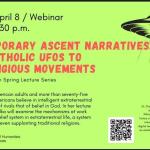Washington D.C., May 22, 2016 / 04:02 pm (CNA/EWTN News).- With high divorce rates among Catholic couples – and marriage rates plummeting among millennials – Church leaders are scrambling to address the problem. But long before Pope Francis' recent apostolic exhortation on “The Joy of Love” was written, one marriage prep ministry was already putting the Holy Father's message into practice. The U.S.-based Witness to Love marriage prep ministry seeks to challenge engaged couples to a greater and more fulfilling life of virtue through an intensive, multi-faceted program. It's something that's called for distinctly in the Pope's document when he says that “marriage preparation aimed at giving couples a genuine experience of participation in ecclesial life and a complete introduction to various aspects of family life.” However, tough conversations about an engaged couple's spiritual situation often fail to happen in marriage prep. “In most marriage preparation, we don't expect them (couples) to accept the challenge, and we don’t give them the challenge,” Mary Rose Verret, founder of Witness to Love, told CNA in an interview. Verret and her husband realized that many Catholic couples – even those who were receiving marriage prep – saw their marriages fall apart. “Most of us in marriage prep have lost hope,” she admitted. But couples, she said, “are capable of great things.” The Witness to Love marriage prep ministry is intensive. It involves engaged couples working with a priest or deacon who catechizes them and a “mentor couple” at the parish who befriends them. Thus, they not only receive the basic teaching on the sacrament, but they are invited into a deeper participation in the life of the Church through the friendship and witness of their married “mentors.” Pope Francis noted a need for stronger marriage preparation in “Amoris Laetitia.” He wrote that “learning to love someone does not happen automatically, nor can it be taught in a workshop just prior to the celebration of marriage.” He added that catechesis must continue after a couple’s marriage, and shouldn’t stop when they make their vows. Witness to Love, founded in 2012, seeks to do just this, to invite couples to be fully involved in a parish and not simply to disappear from the church once they have said their vows, as is all too common today. Most couples don't get married at their current parish, Verret noted, which means that priests and wedding coordinators at the parish venue might not know the couple at all. There might only be a pre-nuptial inquiry and a confirmation of the baptismal certificates of the man and woman without any significant investigation into the emotional and spiritual health of the couple. Consequently, many couples are “falling between the cracks,” Verret said, and when they encounter marital difficulties they were not prepared for, they may have no one in their parish to turn to. Through interviewing hundreds of couples before they began their ministry, Verret and her husband Ryan realized that many Catholic couples who were even receiving marriage prep saw their marriages fall apart. “Amoris Laetitia” instructs Catholics to “find the right language” and “invite” couples “to take up the challenge (of marriage) with enthusiasm and courage.” So the Verrets realized that friendship is the answer so many couples need when preparing for marriage. A couple, at the beginning of Witness to Love marriage prep, is asked to pick a “mentor couple,” a married couple they admire and look up to, to accompany them as friends not only through the engagement but into their own marriage. The mentor couple is then trained by parish staff or volunteers to ensure they are up to the task. By friendship with this married couple, an engaged couple has both a good example and a mentor they can confide in. “The only way we’re going to be able to offer true accompaniment,” Verret said, “is if there’s someone already involved in the process before the wedding.” Someone “who’s been formed, who’s been coached, who’s been growing in virtue with (the couple), who’s been connecting them to the parish, and then prior to the wedding there’s an invitation to parish life, invitation to small groups, a follow-up after the wedding where both of those couples are invited into small groups together.” Many couples who otherwise might have faded away from active participation in the church after their wedding now have a connection to the Church through their new friends. And, Verret noted, they have someone experienced to talk to when they encounter difficulties early in their marriage. “Amoris Laetitia” affirms the very practice of mentor couples: “With the help of missionary families, the couple’s own families and a variety of pastoral resources, ways should also be found to offer a remote preparation that, by example and good advice, can help their love to grow and mature.” It is “equally beneficial” for both parties, Verret said. The engaged couples like to spend time with mentors they admire, and the mentors are awed that they would be chosen for the task, and take their responsibility seriously. Many couples who otherwise might have faded away from active participation in the Church after their wedding now have a connection. This friendship is a critical component of the marriage prep program; priests are then able to focus more on catechesis, and the program becomes more than just a conference or series of classes which provide a brief “shot in the arm” for couples that fades in time. “A gradual process where you do tell them the truth in love and within the context of a relationship is more likely to be successful,” the Verrets noted in their program training outline. “You can't really witness without a relationship,” Verret told CNA. “Conversion happens in a relationship.” Dr. Peter Martin is a psychologist who works at Catholic Social Services in Southern Nebraska. The Verrets relied on his input for their ministry. In an interview published in the training program, he explained why a mentor couple is so important to marriage prep. Engaged couples, once they marry, undergo serious role changes from man and woman to husband and wife, and to father and mother, he noted. This can intensify existing insecurities and bring about new ones, he said. The guidance and advice of a parish and a married couple can bring significant support to a newly-married couple’s struggles, he said. Yet for a friendship to even exist, there must be “trust,” Verret said. This is hampered by a wide gulf that currently separates many engaged couples from living in accordance with Church teaching. The mentor couple is there to bridge this gap between an engaged couple’s situation and Church teaching which can seem daunting at first glance, Verret said. The friendship and witness of the mentors makes the Christian life more livable and concrete. “That’s what we need to be doing,” she said, but “it’s not what’s happening…there's such a disconnect between engaged couples and those preparing them.” Some parishes worry about challenging engaged couples with an intensive marriage prep program because they don't want the couple to be overwhelmed and switch church venues. “We can't not have the revenue,” one marriage prep coordinator told Verret of her fear of losing couples. Yet “the buck has got to stop with somebody,” Verret said. If the parish doesn't reach try to invite the couple to full participation in the life of the Church, who will? On another occasion, a priest told her that it was “unrealistic and impossible to expect engaged couples” to return to mass after marriage prep. However, St. John Paul II's 1981 apostolic exhortation “Familiaris Consortio” made it clear that Catholics must “integrate couples into their church, into their parish,” Verret said. From what she had seen before she and her husband started their ministry, that exhortation was largely being ignored. “How can we expect couples to come to church if they’re not invited, and if we don’t even expect them to be able to come?” she asked. “If we’re not building friendships with them, they’re not going to come.” Another big problem today, Verret noted, is that engaged couples visit the church venue and pick out a wedding date before they even begin marriage prep. “We always say the first person they meet with absolutely, absolutely always must be Father or Deacon,” she insisted. “It cannot be the wedding coordinator ever. They can’t come scope out the church and get their date first. No. That’s backwards.” Rather, couples should meet with the pastor or deacon first, complete a “pre-marital questionnaire,” choose their mentor couple, and talk with the marriage prep coordinator. “Otherwise,” Verret said, significant problems might not get discovered until months into the process and after the wedding invites have already been sent out. By then, “everybody knows this shouldn’t have happened, but what was in place to prevent it from happening?”Photo credit: www.shutterstock.com. Read more




















